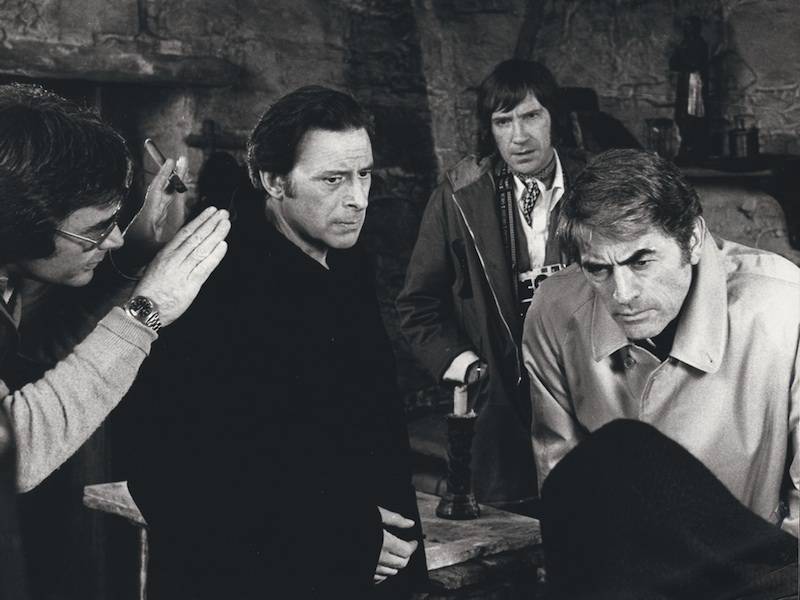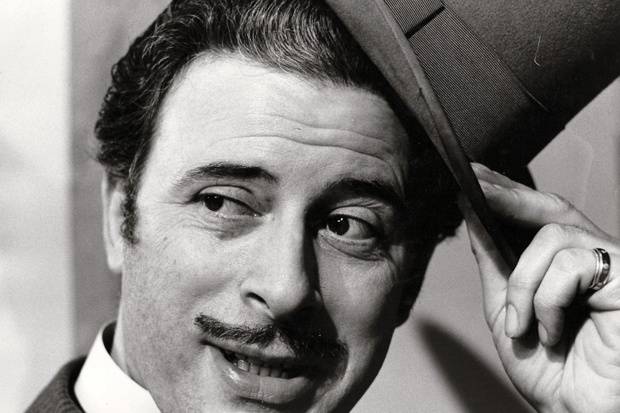Robert Rietti, "The Man of a Thousand Voices' Dies at Age 92
Although we might not have been aware of it at the time, we have all probably heard Robert Rietti’s quite a few times before. Born on February 3rd, 1923, under the name of Lucio, he became known in the film industry as “the man with a thousand voices” due to his innumerable contributions to many of Hollywood’s greatest successes.
Rietti (sometimes referred to as Rietty) started acting very young, supported by his father Victor Rietti, who saw great potential in his natural talent for memorizing and reciting dialogues. He quickly became a child star and was even handpicked by Hitchcock to play a leading role in "Sabotage", which he unfortunately ended up having to turn down.
Growing up, his life was anything but dull, both on and off screen. He lived in London – where he was born – when World War II broke out and was held in an internment camp because of his Italian heritage for a period of time.
Strangely enough, he then managed to actually become a part of the British Army by serving in the entertainment corps.
After the war ended he began using his voice more by working in radio, notably alongside Orson Welles with whom he often collaborated, starting with series such as "The Third Man" (1951) and "The Black Museum" (1952).
But Robert Rietti was most appreciated as a dubber, something he seemed to be born to do given his natural ease with languages and his talent for mimicking accents. He discovered these skills while revoicing parts of films, something that was routinely done in the pre-digital era when directors felt the need to adjust the quality of the sound or dialog and the original actors were inept or unavailable to contribute.
Rietti started by revoicing minor parts in “Call of the Blood” (1948) and then word of his talent spread and he was called to lend his voice to various roles, either jumping in and perfectly recreating the actor’s voice to adjust parts of dialogue, or even voicing over entire films – sometimes even taking on multiple roles in the same movie – and thus giving these characters a brand new customized identity.
As stated in a recent article by Bruce Weber published in The New York Times, also in occasion of the actor’s death, Rietti’s voice took on roles such as that of Doctor Zhivago in the beautiful 1965 feature, it mimicked that of Orson Welles for Long John Silver in the 1972 “Treasure Island”, and replaced Robert Shaw’s in “Avanlanche Express” (1979) after the actor died.
According to the same article, he once had to voice a mindboggling 98 voices in one single movie, the 1970 Italian-Soviet film “Waterloo”, apparently as a result of a technical disaster. He even voiced a series of villains in the James Bond films, including “Thunderball”, “For Your Eyes Only”, and “You only live twice” in which he respectively pulled off sounding Italian, German, and Japanese.
His incredibly adaptable voice is what made him so successful and requested within the film industry. Ironically, it’s also what made it impossible for audiences to recognize him. All the more so considering that he often was not credited for his contributions.
Fortunately, he also appeared in various acclaimed movies and series in his entirety: he was in “The Omen” (1976), “The New Avengers” series (1977), “Madame Sousatzka” (1988), and “Hannibal” (2001), the sequel to “The Silence of the Lambs”. The multifaceted quality of his career, added to the retrospective credit he has recently been receiving for his voice roles, ensure that his immensely rich contribution to the international film industry will be remembered.






































i-Italy
Facebook
Google+
This work may not be reproduced, in whole or in part, without prior written permission.
Questo lavoro non può essere riprodotto, in tutto o in parte, senza permesso scritto.